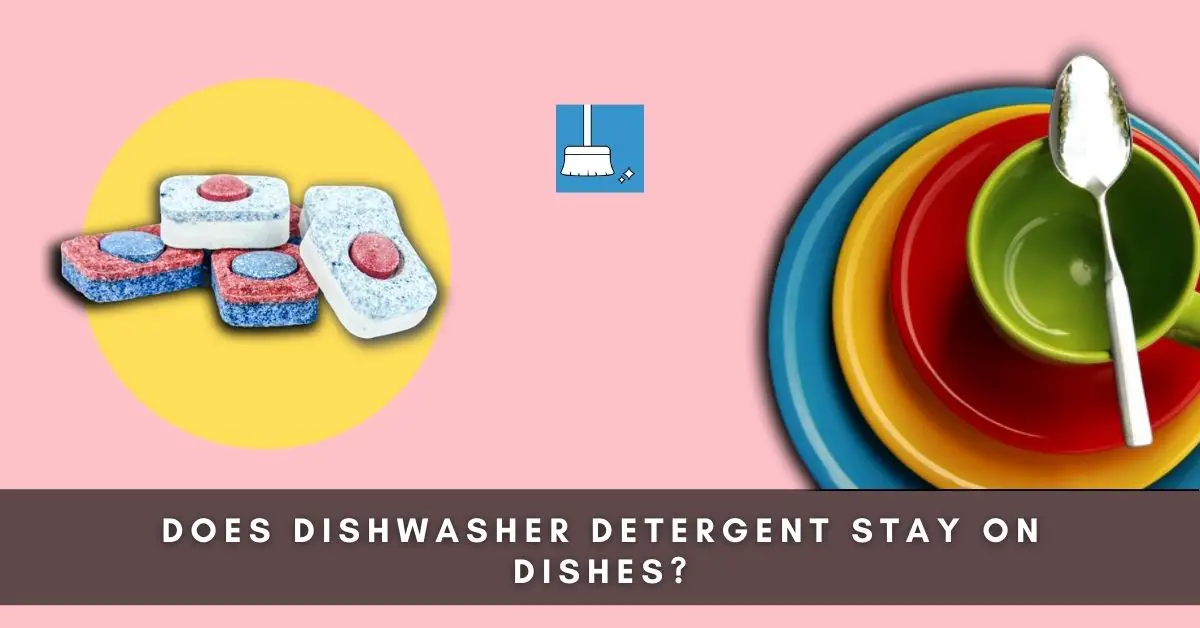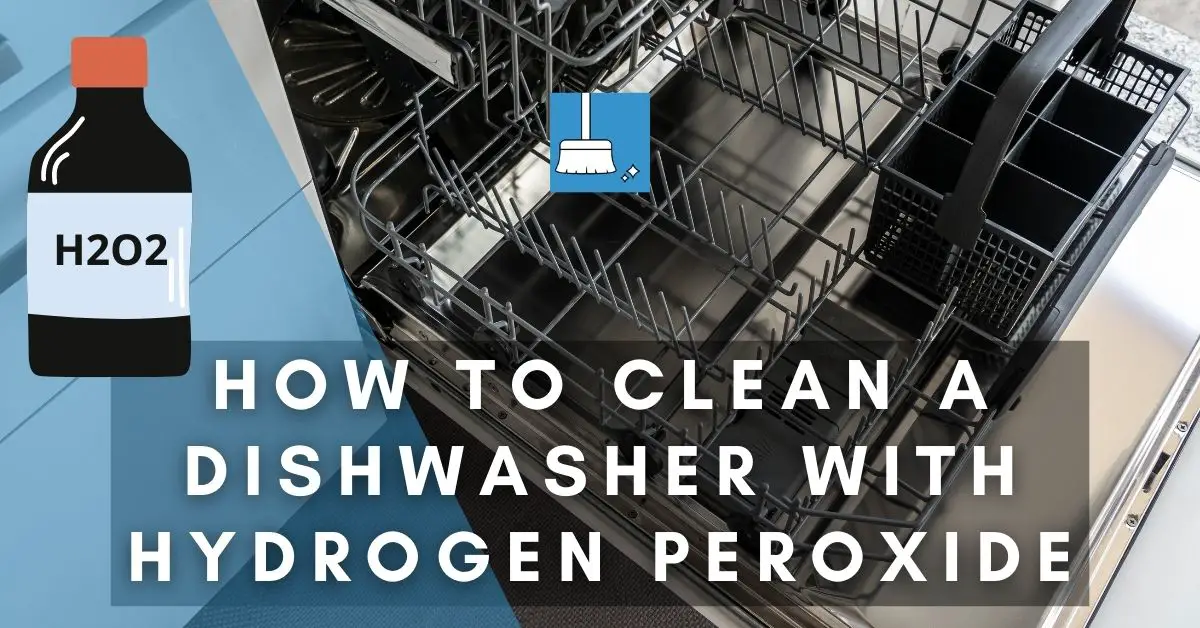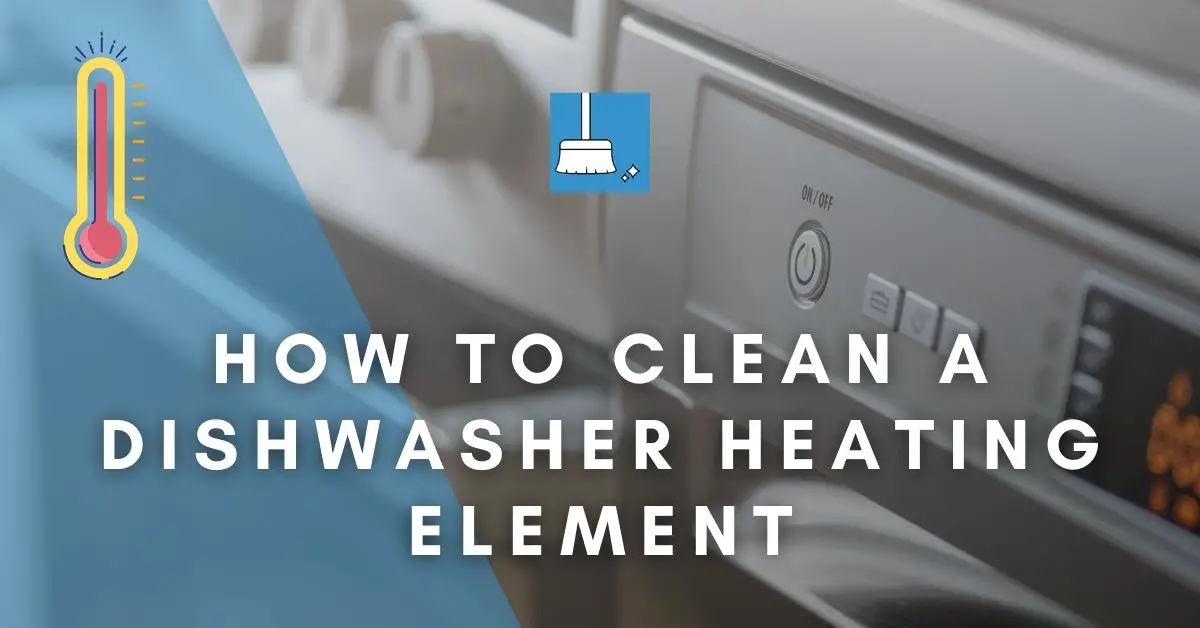We are always careful about ensuring that our dishes are appropriately rinsed after a wash because we know the effect of serving fresh food on a plate with soap residue and ingesting it.
For this reason, many opt for the dishwasher as opposed to the conventional hand-washing because we believe that the washing cycle has a more effective rinsing and drying system. But what if it doesn’t take off the detergent fully?
In this article, we will see if detergent stays on the dishes, the harm that it causes, how to remove it and how to prevent it.
Does Dishwasher Detergent Stay On Dishes?
Usually, dishwasher detergent does not stay on dishes after a wash. This is because the machine takes the dishes through a rinse aid and heating cycle, making it almost impossible for any traces of soap to cling to the surface of the plate. But in rare cases, detergent may be left behind.
Despite the excellent cleaning power of the dishwasher, some dishwasher owners still complain of having to deal with detergent residues on their dishes.
If this happens, then there are a few factors leading to it which will be discussed in the section below:
Why Does Dishwasher Detergent Stay On Dishes?
1- The Inability of Soap to Dissolve Properly
Owing to how some detergents are being produced or certain factors like the type of water or a fault in the machine, dishwasher detergents may fail to dissolve properly in water.
This factor might be overlooked when using the detergent to wash clothes and surfaces, but it shouldn’t be ignored for your dishes.
Dishwasher detergent can also clog drain pipes by leaving residues behind.
It is also important to discover if a detergent is suitable for washing dishes before purchasing it. You can read up on reviews or even look at the body of the detergent package to find out such information.
2- The Water Type
This might not be often said, but the type of water that flows from your tap is important.
Water with a high concentration of minerals often holds on to detergent and makes it near impossible for the cleaning agent to get completely wiped off the dish surface even after several rinses.
What happens is that the chemicals in the detergent mixes with the minerals in the water and stay that way.
So, although you can’t see a soap sud or trace with your bare eyes, chemically, the elements in the soap and water have clung to one another and would be present on your plate.
3- Using Too Much Detergent
When too much detergent is added to the dishwasher, the machine might not be able to rinse off the excess soap suds, which would eventually lead to the dishes coming out with detergent traces on their surface.
Also, whenever the soap overshadows the water, it could be due to certain factors like the soap lathers, too much detergent has been used, or the dishwasher’s water pump is not releasing enough water because it is clogged or faulty.
Is Soap Residue on Dishes Harmful?
Yes, it is harmful. When soap is not properly rinsed off a dish, the chemicals from the detergent mixed with bacteria from the old food remain stuck to the dish and get ingested by the person who uses that dish.
Ingesting food with traces of soap in it (gotten from the plates where the food is served) is a sure-fire way to a health problem.
Research has it that people who consume soap in either little or large quantities often experience gastrointestinal or/and respiratory problems.
Although, when soap residue stays on dishes, it is only a little quantity left on the surface and ingested by the individual whose food is served on the dish. Below is the common effect of ingesting soap residue with one’s food.
Effects of Ingesting Soap Residue With One’s Food
Stomach Upset
Sometimes, our taste buds might not really notice when food has that soapy feel attached to it, especially when it’s in a little quantity, but guess what?
our stomach knows when we have taken in a bad substance and it would definitely react to it.
People who ingest soap residue with their food (most especially those with sensitive stomachs) often experience discomfort in their bellies which would eventually be ejected out of the body.
This could be through vomiting, stooling, or taking medication as prescribed by the doctor.
Nausea
In some cases, you can actually taste the dish soap in your mouth after taking a spoon of the meal (the best thing to do at that point is to stop eating the food because taking in more would only increase the quantity of the chemicals in your body system).
Perhaps you chose to swallow or spit out the food, either way, an after-taste might still stick to your tongue, which can be nauseating.
How To Remove Dish Washer Detergent Residue From Your Plates? (Step-by-step Guide)
The Re-rinse Method
This method involves manually rinsing the dishes after they have passed through the dishwasher.
This style is employed in cases whereby the problem causing the detergent residues on the dishes is because the dishwasher water pump is faulty and not releasing enough water to cleanse the dishes or that the detergent used was too much or had an excessive fragrance.
Steps
STEP 1: After the dishwasher washing cycle has been completed, remove the dishes from the machine.
STEP 2: If the problem is with the dishwasher’s water pump or excessive detergent used in washing the dishes, simply take each plate one by one and rinse them under running water thoroughly.
To be satisfied, you can repeat the rinse process.
STEP 3: If the problem is with excessive fragrance of the detergent exuding from the dishes, soak the plates in a large bowl for about 30 minutes. After which you can rinse afterward.
Note: When all these have been done, do well to ensure that your machine is fixed, if the problem is with the water pump.
If the problem was with the excessive amount of detergent used in washing, do well to add a little amount of detergent to the wash, and in the case whereby the issue is with the fragrance of the dish soap, preferably purchase an unscented dishwasher detergent.
How Can You Avoid Dishwasher Detergent Residue On Your Dishes?
Install a Water Softener in Your Home
The type of water flowing from your water source can be a key player in leaving soap residue on your dishes and the truth is that everything (the amount of soap used in washing and the machine) can be in place and in perfect condition while the only issue would be stemming from the water used in washing – hard water.
And the only solution is to change the type of water that flows into your dishwasher. In fact, a re-rinse might be next to a waste of effort when the water to be used is still the same water type that flows through the dishwasher.
If hard water is flowing from your water source (such as well water), the minerals in the water would keep clinging to the dishwasher detergent rather than cleansing it and the only solution is to install a water softener in your home.
This would only serve for your dishes alone, but would also change the quality of water used in cleaning your body and the surfaces in your home.
Final Thoughts!
Detergent fragrance and residue being retained on the surface of our dishes can be a huge turnoff when eating a meal served on the dish.
Although many complain about having to deal with this, some do not know how to tackle this problem.
Whether you hand wash your dishes or use the dishwasher, this article has explored the different ways to deal with dishwasher detergent residues and their causes.






Pingback: Can You Put Dish Soap In A Dishwasher? (How?) »
Pingback: Can A Dishwasher Cause Rust? (How To Avoid?) »
Стильная одежда играет важную роль в повседневной жизни.
Она дает возможность произвести хорошее впечатление.
Удачный внешний вид усиливает самооценку.
Одежда может быть инструментом первого восприятия.
https://links.mvmedia.ru/redirect.php?id=Xfpmjs6zIOmo
Кроме того, продуманный гардероб экономит время в повседневных делах.
В долгосрочной перспективе внимание к стилю формирует привычку.
Таким образом стильная одежда остается элементом современного образа жизни.
Your comment is awaiting moderation.